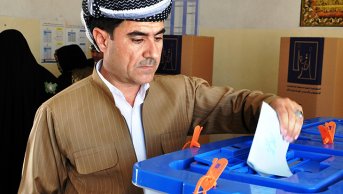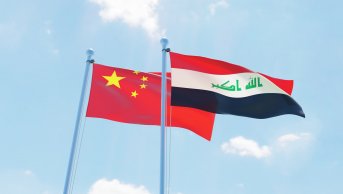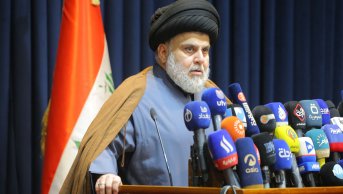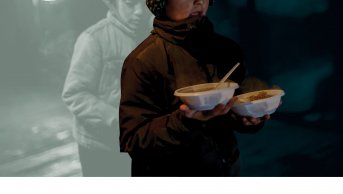Why don’t the Sunnis support the protests in Iraq?
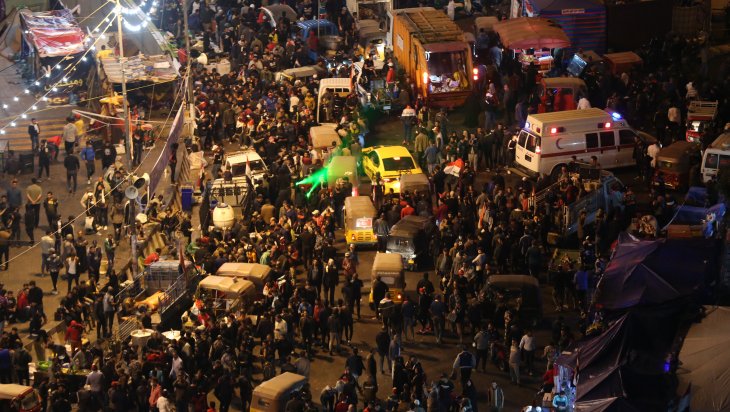
Since 1 October 2019 hundreds of people have been killed and thousands injured in demonstrations spreading to the central and southern cities of Iraq as well as the capital, Baghdad, in protest against unemployment, corruption, lack of public services and Iran's effectiveness in Iraq. A low level of participation of Sunni youth is observed in the protests in Baghdad, Basra and Babylon where Shiites participate in masses. In addition, there were no protests in the provinces of Mosul, Anbar, Saladin and Diyala where Sunnis live in high numbers. It is remarkable that the Sunnis, neglected after the US occupation of 2003 in the country, exposed to the pressure of the Shiite governments and facing the heavy destruction by the terrorist organization ISIS, are hesitant about mass participation in the protests and react politically in a weaker manner.
Sunni Protest Culture
The fact that the Sunnis do not participate in the ongoing protests in Iraq does not mean that the Sunni community is alien to the protests. The divisive attitude of the Shiite powers that ruled Iraq, which underwent radical changes as a result of the US occupation in 2003, gradually prompted the Sunnis to lose confidence in the state. With Shiite leader Nouri al-Maliki coming to power in 2006, the government pursued sectarian policies, limited the Sunni political representation, and punished them by restricting investments in the regions where they lived, remained insensitive to the problem of increasing unemployment and poverty, and could not take necessary security measures against terrorist groups, which eventually deepened the Sunni reaction. In 2012, that Maliki's private troops raided the house of former Iraqi Finance Minister Rafi Issawi, a Sunni leader of the Iraqi National Movement (Al-Iraqiya), an Iraqi Army officer raped a young girl in a prison in Mosul, and that a Sunni Arab prisoner was tortured and killed in a prison in Diyala encouraged the Sunni community to take to the streets. Due to the allegations, again in this process, that the government was ruled by one man policies, the secular Shiite leader of Al-Iraqiya, Ayad Allawi, who is known for his closeness to the Sunnis, and resigned from the Presidency of the National Strategic Policies Council; in the meantime, Vice President Adil Abdulmahdi, who was on the verge of resigning because of the ongoing protests, quit his job. Criticizing Maliki for his tendency to Saddamization, the removal of Sunni politician Saleh al-Mutlaq, the former Deputy Prime Minister of Iraq, and the sentencing of then Vice President Tariq al-Hashimi (of Sunni origin) escalated the social tension.
Following systematic pressures, since the end of 2012, Iraqi Sunnis have organized violent protests against Maliki in Mosul, Saladin, Kirkuk, Anbar and Diyala provinces where they live intensively. That the forces loyal to Maliki, who, with the help of the Shiite coalition, ruled the country with an iron fist for two terms and failed to completely eliminate the al-Qaeda-related radical groups in the Sunni regions though supported by the Iraqi army and the US, increased the interest and support of the Sunni Arabs for demonstrations; however, more than 200 people lost their lives during the protests. It was evaluated that this harsh attitude helped ISIS find further support in the Sunni regions.
Reasons for Sunnis not to participate in the protests
One of the demands of Shiite-dominated protesters who have been demonstrating in the country since October 1 is the resignation of the government. In this context, Sairun leader Muqtada al-Sadr, one of the strongest partners of the government, called for the resignation of Prime Minister Abdulmahdi. However, it is seen that Sunni groups in the parliament have conflicting ideas in this regard. Iraqi Decision Coalition leader, Sunni politician, Osama al-Nujeyfi was the first to back up Sadr's call for the government to resign and for the parliament to freeze and for a provisional government to be formed. Nevertheless, it is seen that the Fatah Coalition led by Hadi al-Amiri, known for his proximity to Iran, which stands out as one of the significant partners of the government, and the political parties with the largest armed groups under the umbrella of Hashd al-Shaabi continue to support Abdulmahdi. On the other hand, Sunni politician Jamal Karboli, leader of the National Development and Reform Movement Party, supported Amiri. The Sunni politicians, who took a position in the new political atmosphere affected by the protests, are trying to act neutral about the participation of the Sunni community in the protests. There exist many reasons behind the fact that Iraqi Sunnis, who have a deep-rooted culture of protest, do not participate in the ongoing demonstrations in the country and that politicians are cautious about it.
Based on their past experience, the Sunni decision not to participate in the protests in masses is thought to have resulted from the fear that the government may declare them as “ISIS supporters”. The important part of the state and society holds Sunnis responsible for the emergence and maintenance of ISIS. Protesters in Baghdad, Babylon, and Basra are particularly supported by educated young people, but those who live in Mosul, Kirkuk, Saladin, Anbar and other Sunni regions are cautious because they are aware that they will be labeled as ISIS sympathizers and that the state will react violently. As a matter of fact, on October 24, the threatening message that the Police authority sent to the citizens through social media in Anbar province with a dense Sunni population that lessons should be learned from the past, supports the concerns Sunnis have. In addition, the media reported that some Sunni young people living in Anbar tried to go to Baghdad to participate in the protests but were prevented from doing so by the authorities blocking the roads to the city. On the other hand, it is claimed that the posts of those who support the protests are listed by the security forces and received letters containing threats. In this context, the US-based Human Rights Watch (HRW) announced on November 4 that the authorities in Anbar suppressed Sunnis’ search for rights.
One of the factors limiting the mass participation of Sunnis in the protests is the fear of being stigmatized as Saddam supporters. For, given the possibility of the government accusing and imprisoning Sunni protesters for working for the old Ba'ath or Saddam Hussein regime, most Sunni politicians, let alone the public, are thought to be keeping their distance from the protests. As may be recalled, during the protests that started in 2012, (old) Iraqi flags belonging to the Saddam Hussein period were waved and slogans such as “Sunni Spring in Iraq” were shouted. In case such a thing is re-experienced, it is inevitable that the government will make propaganda about it. From this point of view, it can be concluded that the Sunnis’ silent attitude and their refusal to participate in the protests are quite strategic. Considering the disproportionate violence against Shiite protesters in the provinces of Baghdad, Dhiqar, Maysan, Diwaniya, Basra, Muthanna, Babylon, Najaf, Karbala and Wasit, Sunni participation may result in the increase of the violence due to sectarian divisions. It is thought that some actors within the government, especially those who accuse even the Shiite protesters on the streets of supporting Baathism, will make unpredictable moves if the Sunnis support the mass protests. Besides, aware of the government's ability to manipulate participation in protests, Sunnis can be interpreted as cautiously approaching the protests in order not to overshadow the success of the protests.
Concerns about Iran's influence in Iraq and the oppression by the Tehran-backed Shiite militia group Hashdi Shabi are also among the reasons affecting Sunni participation in the protests. Iran's spiritual leader Ali Khamenei claimed that the US, Israel, and Saudi Arabia were behind the protests in Iraq, while the statement of the leader of the Fatah group, Hadi al-Amiri, who is close to Iran, commander of the Badr Organization, government partner in the Iraqi parliament, and one of the most influential groups in Hashd al-Shaabi, that “the US and Israel are behind the unrest in Iraq” shows the relationship of Hashd al-Shaabi with Tehran. “If requested by the government, the Hashd al-Shaabi factions are ready to intervene in order to prevent any coup or rebellion in Iraq”, said Falih al-Fayyadh, an Iraqi National Security Council adviser and official authority of Hashd al-Shaabi. These statements may have limited the Sunni participation in the protests as they feared being accused of working for external powers. Hashd al-Shaabi is held responsible for the allegations that the high mortality rate in protests was caused by the use of snipers and that many protesters disappeared after being arrested. On the other hand, it was claimed that the Asa’ib Ahl al-Haq militias in Hashd al-Shaabi in Maysan killed a large number of protesters. In this context, the fact that even Shiite protesters encounter such a harsh attitude adversely affects the participation of Sunnis in the protests. While the Shiites’ leading role in the protests limits the propaganda power of the government and Hashd al-Shaabi, possible visibility of Sunnis in the manifestations may pave the way for the manipulation of the process under the pretext of the “threat of radicalism”. Particularly reflected in international human rights reports, Hashd al-Shaabi's ISIS-like attitudes in the Sunni regions justify Sunni concerns. On the other hand, the extreme violence against the Shiite protesters is interpreted as a message that the Sunnis will find themselves in even a worse situation if they participate in the protests.
The decrease in the expectations from the politics and elections in the country and the physical and psychological destruction caused by ISIS in areas like Mosul and Anbar where a high number of Sunnis live may be considered among the factors affecting the participation of Sunnis in the protests. The fact that the voting rate, which was 60 percent in the country both in the 2010 and 2014 elections decreased to 44 percent in the Iraqi federal elections in 2018, is associated with the decline of Sunnis' belief in politics and elections just like the Shiites. In addition, in the country where the wounds of sectarian conflicts that cost hundreds of thousands of lives after the US invasion in 2003 could not still be healed, the Sunnis who were pushed out of the political system cannot fully participate in the government and cannot trust the state enough. It is considered that the destruction of more than 150 thousand houses, severe economic problems, almost no functioning of the infrastructure and displacement of thousands of people in the regions where ISIS was quite effective prompt the Sunnis to change their priorities. In spite of the severe human, physical and economic difficulties in the regions where they live, Sunni people who have not been able to learn lessons from their previous protest experiences and have to pay heavy bills afterward, may think that they do not have the potential to remove the psychological and physical costs of a new wave of protests and thus, it will not be beneficial to participate in the ongoing demonstrations. In addition to this, some of the Sunnis argue that the protests are a fight between the Shiite community and the Shiite-dominated government and that the Sunnis should not be involved in this fight. Considering the protests as a conflict between Shiites, this view claims that the Sunni people will pay the heaviest price if they are involved in the protests.
There may be some comments arguing that the protests in the Iraqi streets where “no to sectarianism” banners are carried are not affected much by sectarian ideas and that Iraqi identity is strengthened in the country. However, Iraq's administrative problems, Iran's hegemony in the country and the effectiveness of Hashd al-Shaabi prevent the Sunnis from embracing the country. The Shiites’ demands for the overthrow of the Shiite power they themselves selected may be regarded as the last proof of the failure of the political system that has developed after the US invasion of Iraq and been based on a deep sectarian division. When recalled that the suppression of Sunni protests in 2012 let ISIS have a ground in the country, it can be foreseen that sectarian-based unrest will continue in Iraq if sectarian policies are not given up on and a prospective government that also includes the Sunnis is not formed. Otherwise, anti-government opposition strengthened by sectarian oppositions seems to open up space for radical organizations. On the other hand, if Iraq, which has the world's fifth-largest oil reserves and a highly young population (approximately 75 percent is under the age of 35), uses these rich resources through an inclusive policy, the country could find a way out from this very chaos.

